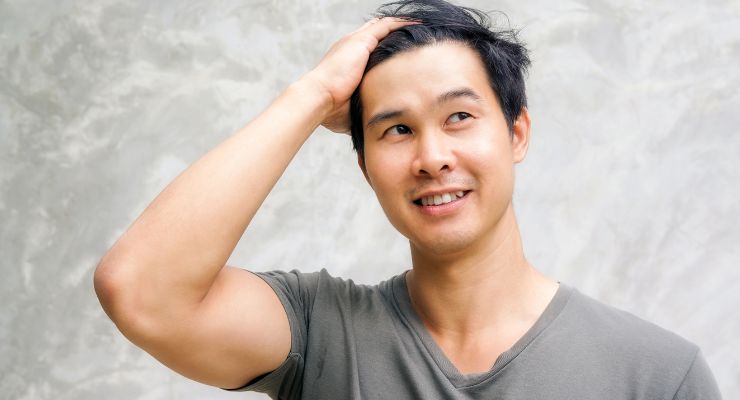07.12.23
An extract of Ageratum conyzoides, known colloquially as Billy Goat Weed, was linked to significant improvements in hair density and biomarkers related to hair loss in a placebo-controlled, randomized, double-blind study published in Trichology and Cosmetology.
The extract, branded as HairAGE by Gencor, was administered to half of a cohort of 84 women at a dose of 250 mg daily, and compared to placebo over a period of 12 weeks.
The authors used HairCheck, a test to measure hair density, as a primary endpoint, along with hairline recession and the number of hairs lost in a one-minute combing test and hair pull test. Other assessments included the Norwood/Hamilton and Ludwig-Savin scales for evaluating male and female pattern baldness, respectively.
Compared to placebo, the treatment group saw a significant reduction in hairline recession scores, with an improvement in hair density trending toward significance, the authors wrote. Further, there were significant improvements in total prostaglandins and type-2 5a-reductase. Prostglandins are a group of lipids that control processes including inflammation, while type-2 5a-reductase is an enzyme linked to hair loss.
Together, the findings suggest that the ingredient can balance inflammatory repsonses and inhibit hair loss factors.
“This clinical trial supports the mechanism of action as well as showing hair recession consistent with what we have seen in the in-vitro, open-label, and double-blind topical studies with HairAGE,” said R.V. Venkatesh, co-founder at Gencor. “According to this research, HairAGE can now effectively be incorporated as an oral dietary supplement for improved hair health, giving more flexibility in applications for women and men.”
The extract, branded as HairAGE by Gencor, was administered to half of a cohort of 84 women at a dose of 250 mg daily, and compared to placebo over a period of 12 weeks.
The authors used HairCheck, a test to measure hair density, as a primary endpoint, along with hairline recession and the number of hairs lost in a one-minute combing test and hair pull test. Other assessments included the Norwood/Hamilton and Ludwig-Savin scales for evaluating male and female pattern baldness, respectively.
Compared to placebo, the treatment group saw a significant reduction in hairline recession scores, with an improvement in hair density trending toward significance, the authors wrote. Further, there were significant improvements in total prostaglandins and type-2 5a-reductase. Prostglandins are a group of lipids that control processes including inflammation, while type-2 5a-reductase is an enzyme linked to hair loss.
Together, the findings suggest that the ingredient can balance inflammatory repsonses and inhibit hair loss factors.
“This clinical trial supports the mechanism of action as well as showing hair recession consistent with what we have seen in the in-vitro, open-label, and double-blind topical studies with HairAGE,” said R.V. Venkatesh, co-founder at Gencor. “According to this research, HairAGE can now effectively be incorporated as an oral dietary supplement for improved hair health, giving more flexibility in applications for women and men.”




























